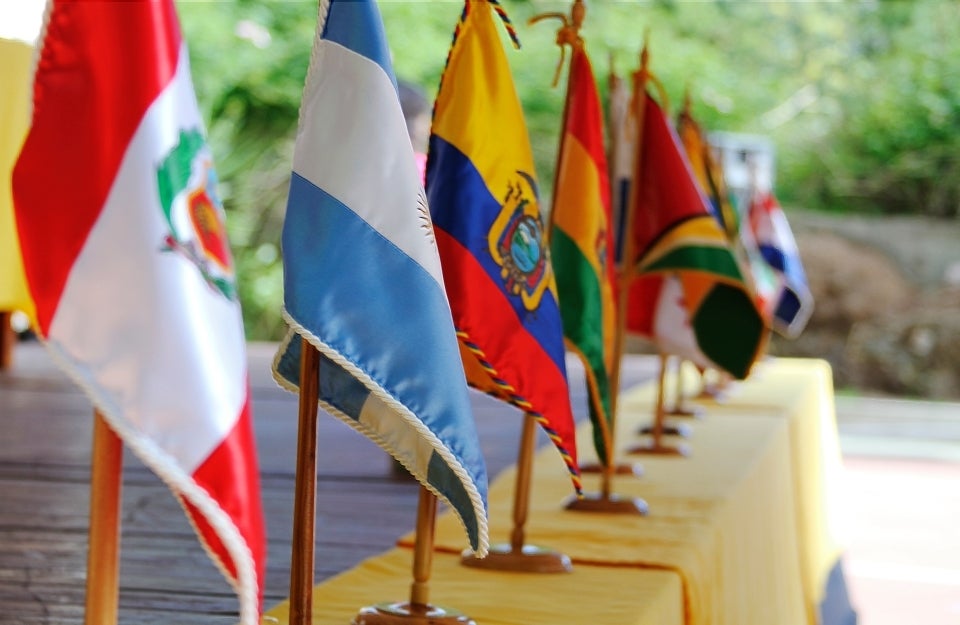Call for Abstracts: ICA 2024 Preconference - "Media and Communication in Global Latinidades"
Submissions should address issues of importance about Latinx and Latin American experiences globally.

The "Media and Communication in Global Latinidades" ICA 2024 virtual preconference aims to examine the production, distribution, and consumption of media and communication in global Latinidades.
It follows up to the five preconferences held in the context of the 2019, 2020, 2021, 2022 and 2023 Annual Meetings of the International Communication Association – on “Digital Journalism in Latin America” in 2019, on “Digital Media in Latin America” in 2020, on “Digital Media in Latinx and Latin America” in 2021, and on “Media & Communication in Global Latinidades” in 2022 and 2023.
We think it is important to provide a platform that incentivizes the flow of information and scholarship as well as equitable participation across the globe. As such, and in recognition of the often unsurmountable structural differences that exist among different national contexts in regard to resources for traveling to international academic conferences, we will again hold the edition of the preconference virtually with the possibility of a social in-person component that will be decided in due time.
Issues of media and communication have increasingly featured more prominently in the global experiences of Latinidad. Thus, it is critical to inquire into the experience of these communities, which tend to be understudied and underrepresented, as well as to examine whether the specificity of Latinx and Latin American experiences might entail differences with those of other communities.
The following are some possible topics of consideration (suitable additional topics will also be considered):
- Latinx and Latin American journalism, as well as journalism by and for Latinx and Latin American diasporas, has sometimes been described as less professionalized and less independent than mainstream journalism in stable democracies. How have these two long-standing features affected the practices of online news production and the self-perception of reporters?
- Political communication has become more polarized over the past couple of years (e.g. in the form of hate speech), with Latinx and Latin American communities and diasporas often being singled out as part of the conjunctural causes for national maladies. How has political communication been reflected in diverse media and communication practices? How have these trends been heightened in recent elections and affected the practices of representation by and about Latinx and Latin American communities and diasporas?
- Misinformation and “fake news” have become a hot topic across the globe, especially during presidential elections and health and environmental crises. What factors affect the spread of misinformation and disinformation in the media by and for Latinx and Latin American communities and diasporas, and how does it compare to the spread of “fake news” that we have observed in mainstream Global North media? How has this been reflected in identity politics?
- Recently there have been legislative proposals in Mexico and Brazil around topics like disinformation, net neutrality, and content moderation, which affect journalism and freedom of expression. How have these conversations taken place? How are they different from the ones in the Global North?
- Advertising, branding, and public relations have thrived globally as industries due to the prominence of international trade and new technologies, bringing people together from all corners of the world. What are the key aspects that explain the consolidation of these industries in Latin America? In what manner have the strategic communication efforts led by public institutions, private companies, and non-profit organizations connect diasporic Latinx communities outside of the region with publics in Latin America? What are the contributions of fields such as Latinx Studies and Latin American Studies to public relations and advertising theories?
- Social movements have emerged to fight against gender violence, systemic racism, or workplace equality, such as #NiUnaMenos, #UnVioladorEnTuCamino and #Vidasnegrasimportam(n). They have often embraced the potential of digital media to self-organize and have their voices heard. What has been the role of social media in the organization of these events? How have the publics engaged? How do their practices and results compare to those of other social movements within and outside of Latinx and Latin American communities and diasporas? How has colorism been made salient by media practices around recent protests against ongoing forms of systemic racism?
- The ongoing migration of large numbers of Latin American people has favored the adoption of peer-to-peer networks, such as WhatsApp, and social media platforms, such as Twitter or Facebook, to maintain and actualize familial relationships and, more generally, a sense of belonging to the countries of origin in Latin America. How do these practices redefine social dynamics, both in the country of origin and in the country of destination? How are challenges and opportunities articulated in the use of digital media among Latinx and Latin American migrants?
- Representation in the media of Latinx and historically marginalized peoples in Latin America continues to be a pressing issue. How do digital media intervene in representation? With the expansion of digital streaming platforms in Latinx and Latin American markets, are new opportunities afforded? Or are old patterns being repeated? How are indigenous and Afro-Latinx communities using digital media to speak about their own experiences?
- Half of the children and adolescents in Latin America are unconnected to the internet at home (UNICEF, 2021). What are the implications of this “digital canyon” for education, well-being and participation during the pandemic and beyond? How does the lack of connectivity in the region coexist with subjective experiences of fatigue and anxiety that seem to emerge from an apparent “excess” of mobile communication opportunities, condensed, for instance, in platforms such as WhatsApp?
- In recent years, debates about so-called voluntary digital disconnection have significantly grown in both academic and lay communities, making a call for expanding theoretical and empirical studies in Global South regions. How are discourses of voluntary digital disconnection from mobile communication technologies and social media, as well as of so-called “digital wellbeing,” being produced, circulated and consumed across Global Latinidades?
- Processes of globalization such as those related to sports and gaming culture have challenged the boundaries of local/global practices, communities and audiences. What are the particularities of Latin American and Latinx sports communication and gaming cultures? How have Latinx and Latin American content creators and audiences constructed their global publics?
- The COVID-19 pandemic has had a disproportionate impact on Latinxs in the United States and in Latin America in general. It has also sharpened differences and contradictions in political discourse, transnational cooperation, media environments, and misinformation flows. How has COVID-19 impacted digital media coverage, consumption and/or production in Latinx and Latin American contexts and among their diasporas? How can scholars address inequities in digital media use and access, across the Americas and among Latinx and Latin American diasporas globally?
We invite submissions of extended abstracts that engage with the questions presented above, as well as those that address issues of importance about Latinx and Latin American experiences globally.
This preconference is sponsored by the Center for Advanced Research in Global Communication at the Annenberg School for Communication at the University of Pennsylvania and affiliated with the Ethnicity and Race in Communication and Global Communication and Social Change ICA Divisions.
It is organized by Claudia Bucciferro, Ayleen Cabas Mijares, Nivia Escobar Salazar, Miriam Hernández, Juan Larrosa-Fuentes, Lucía Magis-Weinberg, Mora Matassi, Eugenia Mitchelstein, Mariela Morales Suárez, Pablo Porten-Cheé, Jessica Retis, Laura Robinson, Lucila Rozas Urruñaga, Mariana Sánchez Santos, Magdalena Saldaña, Arthur Soto-Vasquez, Silvio Waisbord, M. Celeste Wagner.
Timeline
- Deadline for abstract submission: February 10, 2024
- Acceptance notifications: March 10, 2024
- Preconference (on Zoom): June 19, 2024
Submission Details
Authors should submit an extended abstract of no more than 500 words (excluding references) at the following form: https://forms.gle/6BHqgwczagq3E6d17
Attendance at the preconference is free.
Potential participants are invited to submit their abstracts in English, Spanish or Portuguese, noting in which of these languages they would feel more comfortable presenting. While we recognize the historical, cultural, and social importance of the multiple indigenous languages spoken throughout Latin America and by Latinx and Latin American diasporas, limited resources for interpretation and peer review force us to restrict language selection to English, Spanish and Portuguese, as these are currently the three most commonly spoken languages among Latinx and Latin American communities.
If you have any other questions or concerns, please send an email to: icapreconflatam@gmail.com.



